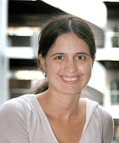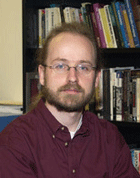GlobalSIP 2013 Symposium on:
Emerging Challenges in Network Sensing, Inference, and Communication
[Download the PDF Call for Papers]
This symposium is focused on the fundamental challenges of network sensing, inference, and communication in the context of real-world network problems spanning multiple disciplines, including computer, biological, and social networks. In each of these application settings, scientists face a myriad of trade-offs related to efficient sampling, accurate inference in the presence of noise or missing data, principled incorporation of sparsity models, flexible and computable models of prior knowledge about network topology, and energy management. Despite these common challenges, however, the type of network considered has a substantial impact on how these challenges manifest and how they can be addressed. This symposium will be highly cross-disciplinary, and focused on (a) connecting researchers across different fields who are facing similar network inference challenges and (b) introducing signal processing researchers to specific network inference challenges arising in a variety of settings.Submissions of at most 4 pages in two-column IEEE format are welcome on topics including:
- Sparsity in network sensing, inference, and communication
- Network structure inference from noisy observations
- Network inference in the presence of missing data
- Efficient sensing of network data
- Energy management in networks
- Complex network topology
- Dynamics of networks
- Flows on networks
- Applications in communication networks
- Applications in biological networks
- Applications in social networks
Keynote Speakers

Christina Fragouli, University of California, Los Angeles, Creating Secrets Out of Erasures: A New Approach to Network Secrecy
We explore a new opportunity for security, that does not rely on the limited computational capabilities of an adversary, Eve, but instead, on her limited network presence. Current cryptographic methods rely on that Eve cannot perform sufficient fast certain operations, eg., large integer factorization. Instead, we can leverage the fact that she is not omnipresent in a wireless domain, and does not wiretap all links of a large wired network. We review and present a number of recent results, that range from information theoretical characterizations for erasure networks, to secure network coding bounds over arbitrary graphs, to testbed implementations.
Christina Fragouli joined UCLA in 2013 as an Associate Professor. She received the B.S. degree in Electrical Engineering from the National Technical University of Athens, Athens, Greece in 1996 and the M.Sc. and Ph.D. degrees in Electrical Engineering from the University of California, Los Angeles in 1998 and 2000, respectively. She has worked at the Information Sciences Center, AT&T Labs, Florham Park New Jersey and the National University of Athens. She also visited Bell Laboratories, Murray Hill, NJ and DIMACS, Rutgers University. Between 2006-2007, 2007-2012 and 2012-2013 she was an FNS Assistant Professor, an Assistant Professor and an Associate Professor, respectively, in the School of Computer and Communication Sciences, EPFL, Switzerland. She received the Fulbright Fellowship for her graduate studies, the Outstanding Ph.D. Student Award 2000-2001 from the Electrical Engineering Department, UCLA, the Zonta Award 2008 in Switzerland, the Starting Investigator ERC Award in 2009 and best paper awards at Mobihoc 2013 and MASCOTS 2011. She served as an Associate Editor for the IEEE Communications Letters, Elsevier Computer Communication, IEEE Transactions on Communications and IEEE Transactions on Information Theory. She is currently an Associate Editor for IEEE Transactions on Mobile Computing. She is also serving as a Distinguished Lecturer for the IEEE Information Theory Society.

James Moody, Duke University, Connecting the Dots: Network Models for Diffusion, Social Integration and Health
Social life is fundamentally interdependent: what we do and who we are depend significantly on a rich evolving fabric of social contacts. But despite this theoretical importance, empirical social scientists are just beginning to systematically include network measurement and modeling in our work. Here I discuss recent advances in network models focusing on the interdependent problems of structural cohesion and diffusion, with relevance to a wide variety of empirical puzzles ranging from network epidemiology to political polarization. I end by discussing future directions for social network research.
James Moody is the Robert O. Keohane professor of sociology at Duke University. He has published extensively in the field of social networks and social theory. His work has focused theoretically on the network foundations of social cohesion and diffusion, with a particular emphasis on building tools and methods for understanding dynamic social networks. He has used network models to help understand school racial segregation, adolescent health, and the development of scientific disciplines. Moody's work is funded by the National Science Foundation, the National Institutes of Health and the Robert Wood Johnson Foundation. He is winner of INSNA's (International Network for Social Network Analysis) Freeman Award for scholarly contributions to network analysis and editor of the on-line Journal of Social Structure.
Paper Submission
Submit papers of at most 4 pages in two-column IEEE format through the GlobalSIP website at http://www.ieeeglobalsip.org/Papers.asp. All papers (contributed and invited) will be presented as posters.
Important Dates
| Paper Submission Deadline | June 15, 2013 |
| Review Results Announce | July 30, 2013 |
| Camera-Ready Papers Due | September 7, 2013 |